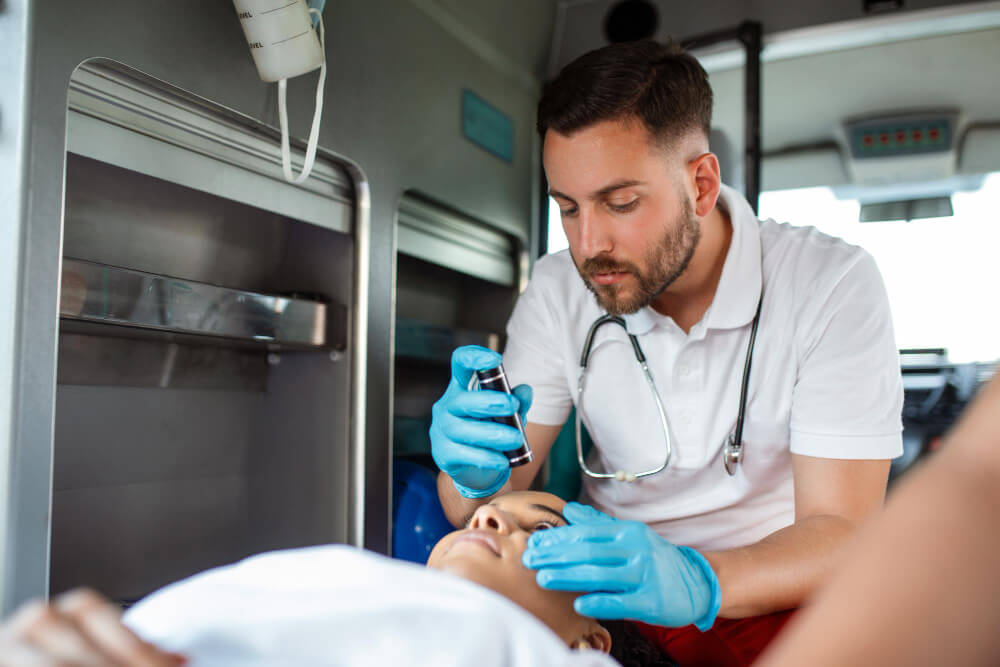The NY State Department of Health estimates that motor vehicle accidents are the number one leading cause of injury-related deaths in the state. Worse yet, car accidents are the second cause of injury-related hospitalizations in New York. While these numbers may not help ease the pain, they help you understand that you are not alone and show you what to do after an accident.
The physical injuries on your body will determine the compensation you seek from your insurance company and from the insurance company of the at-fault driver (assuming you are not to blame for the accident).
Car accidents are different. The severity of the accident will determine the severity of the physical impact on the victims.
Common Physical Symptoms After An Accident
Immediately after a minor accident, you may not feel any pain or see any injuries. However, the symptoms might start to show later. These include:
Headaches
Headaches are common after an accident. They may result from a concussion, whiplash, neck and shoulder tension, traumatic brain injury, anxiety, and post-traumatic stress disorder. These headaches can be minor annoyances, or they can be severe. Regardless of the severity of the headache, you will need to see a physician immediately.
Neck, Back, and Shoulder Pain
In most minor accidents, pain in the shoulders, neck, and back are common. The pain might be feeling fine one day, and then next, you have pains that seem to emanate from nowhere. In most cases, the pain is localized in the three parts above. In other cases, the pain might shoot down your legs and arms. You shouldn’t ignore the neck, back, and shoulder pain even if the pain is mild or sporadic.
Pain in the above three parts can result from injury to joints, nerve damage, tissue damage, and muscle tension. It may also result from stress.
Bruising
Bruising occurs when the capillaries are damaged. In most cases, you can see the bruising on the surface of the skin. However, you may not see the extent of the capillary damage until a physician examines you. It takes time for the blood from capillaries to reach the surface of the skin, and this is why you may only feel burning pain without seeing the extent of the bruising.
If the bruising is minor, it will heal on its own after a few days. However, serious bruising might cause damages to internal organs. If your bruising doesn’t improve, and, instead, it becomes tender and discolors, you need to see a physician immediately.
Numbness and Tingling
Tingling and numbness is a result of nerve damage. The tingling and numbness are common in the neck region, hands, feet, and shoulders. Sometimes, pain accompanies the condition. It is important that you report the symptoms to your doctor as soon as you notice them.
The changes in your mood might also cause physical changes in your body. As a result of the physical impact from the accident, or as a result of post-traumatic stress disorder, you might get anxious, depressed, and experience mood swings. If you have a concussion, you will experience mood swings often.
Stomach Upset and Abdominal Pain
Stomach upsets and abdominal pains are common for drivers and passengers who were wearing a belt during an accident. The seatbelt can cause bruising around the stomach area, which results in nausea or pain. If you experience such, you need to tell your doctor right away to rule out internal bleeding or any other serious case.
Swelling
Swelling occurs in different parts of the body after an accident. Swelling occurs due to tissue damage, sprains, pulled muscles, and many other factors. Swelling may not show on the first day, and may not show its full effect until many days later.
Swelling results in pain and stiffness of the affected area. You can elevate and ice the swell at home, but if that doesn’t help within a few days, see your doctor.
Ringing in the Ears and Blurry Vision
Also known as tinnitus, ringing in the ear can result from a concussion, stress, or loud noises. Tinnitus can be disturbing and might also be an indication of a serious condition. Talk to your doctor on how to address the condition.
Lack of concentration and blurry vision are also common symptoms after an accident. If you have trouble concentrating, see a doctor to rule out the chances of having a brain trauma and mental health issues. If you have blurry vision, or you feel dizzy, you might have suffered a concussion during the accident, whiplash, or you may be having PTSD.
Get an Injury Doctor in New York
Whether you were at fault or not, you need to get compensation from your insurance provider as the laws of New York require. If it is taking longer for the insurance company to compensate you, hire an injury attorney to hasten the process. If you need help getting the proper treatment for your car accident injuries and support with your medical documentation, call our office today.

